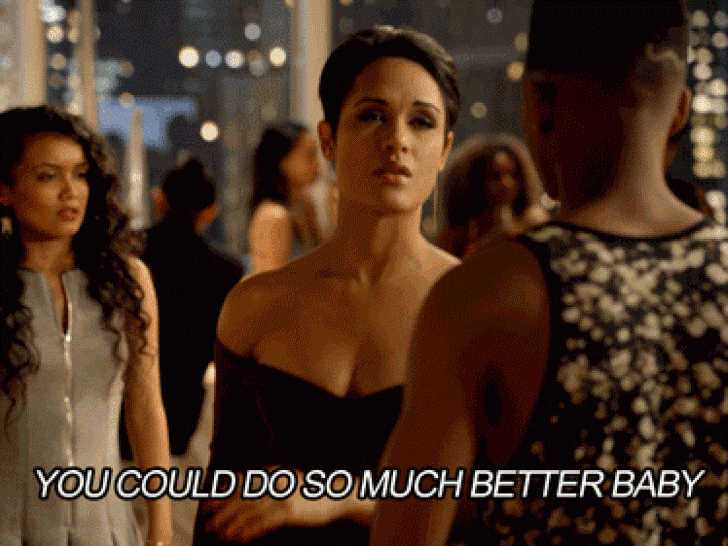Do you have a definite "type" when selecting romantic partners? Like, maybe you have a thing for tattoos. Or maybe you're into intellectual people who like to read. Or, perhaps, you like your partners to have a sense of adventure. Whatever it is, I think that many people would agree that their exes all have certain things in common (in my case, it's emotional unsteady and terrible communication skills).
找对象时,你是不是只找特定一款?比如说,你特别喜欢有纹身的人。或者你喜欢有知识、爱读书的人。又或者你喜欢有冒险精神的人。不管是哪种情况,我想很多人都会同意这一点:自己的前任有某些共同点(就我而言,我的前任在感情上漂浮不定,而且不会沟通。)
Researchers set out to determine how people choose partners, and whether there were any demonstrable patterns (aside from the fact that they were all chosen by the same person, of course). And what they found was that people do, in fact, have a type. When looking at people's exes, they found that they all shared certain characteristics in common (turns out that emotional steady and communication skills were not characteristics on the researchers' lists, alas).
研究员们开始研究人们是如何选择另一半的,研究是否有任何可以论证的模式存在(当然,除了他们都被同一个人选中这一事实之外)。他们发现,人们真的是按照特定类型选对象的。当研究人们的前任时,研究员们发现:他们都有特定的共同特征(原来情感稳定状况和沟通技巧根本就不在研究员们的特征清单上,哎)。

The study, out of the University of California, was recently published online in the Journal of Personality and Social Psychology. It looked at three different studies and compiled the results into a cohesive resource. In total, the characteristics of people in more than 1,000 past and present heterosexual relationships were examined through personal interviews and social media. What the researchers found was that people do have a type, but that "sometimes it reflects your personal desirability and sometimes it reflects where you live," according to Paul Eastwick, associate professor of psychology and the study's primary author.
加州大学的这项研究最近在《人格与社会心理》杂志上发表。该项研究查看了三项截然不同的研究,并将结果编撰在一起。总的来说,研究员们通过个人访谈和社交媒体交谈调查了1000多段异性恋情(有过去时,有正在进行时)中人们的性格。研究员们发现,人们真的是按照特定一款选对象的,但"有时候这反映了你个人的欲望,有时却反映了你生活的地方,"心理学副教授兼本研究的主要作者保罗·伊斯特维克说道。
It turns out that where we live and our demographic groups have a great impact on who we date, not necessarily because they shape our preferences, but because they influence who we are exposed to. For example, people of a certain educational level tend to date people of a similar educational level, but that is because they may go to school together or work together and, therefore, meet each other. The same is true of people who are religious; they're likely to meet other religious people because of their lifestyle. In these cases, choice is more about our environment than our preferences.
事实表明,我们的居住地和周围人群都会影响我们选择约会对象,不一定是因为这些因素塑造了我们的喜好,而且还因为它们影响了我们接触的人。比如,特定教育水平的人往往会和相似教育水平的人约会,但这也许是因为他们一起上学或一起工作,所以能常常见面。有宗教信仰的人也是如此;他们可能会因为生活方式遇到有着其它宗教信仰的人。在这些情况下,选择权在更大程度上取决于生活环境,而非喜好。
译文属可可原创,仅供学习交流使用,未经许可请勿转载













